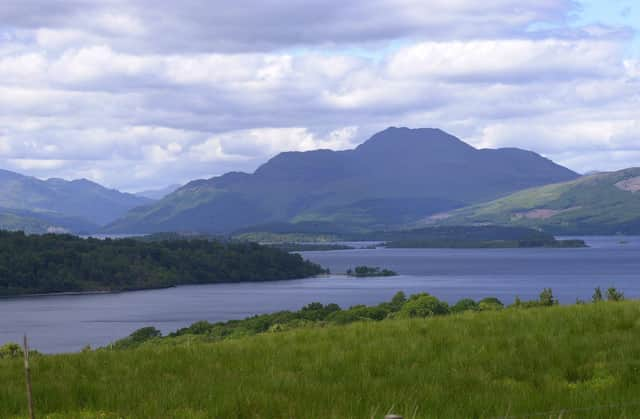Biodiversity crisis: Scotland ranks 212th out of 240 for the quality of its nature. Here's what we need to do – Professor James Curran


Yet, have you heard of COP15 in Canada later this year? This ‘Conference of Parties’ addresses global biodiversity.
The draft proposal – which outlines commitments to be discussed and hopefully signed at the conference – calls for major, urgent, integrated action for biodiversity, without which our ecosystems will continue to collapse.
Advertisement
Hide AdAdvertisement
Hide AdCurrently, species extinction globally is estimated to be proceeding 1,000 times faster than before human-induced damage, and 20 per cent of species are now at risk of disappearing. This jeopardises ecosystem services which World Economic Forum economists estimate support 55 per cent of the world’s GDP.
Healthy ecosystem services provide us with a huge number of crucial functions, such as the ability to absorb a proportion of our climate-damaging carbon dioxide from our emissions; provide clean air and water; ensure fertile soils for crops; support pollination and encourage tourism opportunities.
Despite the ‘climate emergency’ declared by the Scottish Government, Scotland is doing rather badly on biodiversity.
Currently we rank 212 out of 240 nations assessed for the quality of our nature, which the Green Finance Institute, a leading UK-wide cross-sector coalition, estimates will cost £20 billion over the next decade to restore.
Such a huge sum cannot come from public or philanthropic sources alone: it needs substantial private sector investment. While some environmentalists worry about the marketisation of our nature, we are running out of options.
For major private investment, several conditions must be met: scale (around £100 million or more for a project), de-risking (which the government can support using consistent policy and underwriting) and, finally, a reasonable financial return.
Investors generally won’t put in the legwork to create these conditions, but through cross-sector alliances with investors advising, large-scale investable propositions can be created.
One such example is Cairngorms Connect, a project implementing an ambitious 200-year vision to enhance and connect ecosystems within Cairngorms National Park, funded and managed through public, private and philanthropic interests.
Advertisement
Hide AdAdvertisement
Hide AdMany in the scientific community want to see this potentially world-leading effort expanded, but the reality is we need private sector support.
By connecting the rewilded upland and montane habitats of the Loch Lomond & The Trossachs National Park to those of the Cairngorms, then across Rannoch Moor to Lochaber and beyond, Scotland could be a world leader, benefiting communities and allowing our nature to recover.
With the Scottish Government considering a revised national biodiversity strategy following years of decline, this time we urgently need delivery. This involves not only needing private sector investment, but also a professionally managed, formal programme of action.
Delivery demands resources, prioritisation, independent public reporting, repercussions for failure and, most importantly, accountability. With that we will all have a happier, healthier and more prosperous future.
James Curran is a visiting professor at the Centre for Sustainability in the University of Strathclyde, former chief executive of the Scottish Environment Protection Agency and fellow of the Royal Society of Edinburgh. This article expresses his own views. The RSE is Scotland's national academy, bringing great minds together to contribute to the social, cultural and economic well-being of Scotland. Find out more at rse.org.uk and @RoyalSocEd
Comments
Want to join the conversation? Please or to comment on this article.
